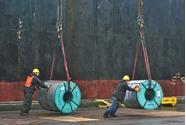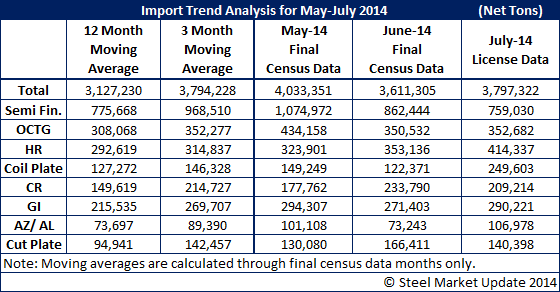Prices

August 7, 2014
Final June Steel Imports Down 10.5 Percent
Written by Brett Linton
Total steel imports dropped during the month of June from the 4.0 million plus tons received during the month of May to 3,611,305 net tons. However, June imports were well above the 12 month moving average (see table below) and were 46.8 percent higher than June of this past year.
The biggest drop was in semi-finished imports which dropped 212,528 net tons over May’s tonnage. However semi’s (most of which are slabs destined for domestic steel mills) were 387,956 net tons higher than one year ago (81.8 percent higher) than during June 2013. The biggest reason for the increase is the improvement in business at AM/NS Calvert (former ThyssenKrupp plant) which ArcelorMittal reported as being up 30 percent and running at an 83 percent utilization rate during the month of June.
We have done a number of analyses on the June import numbers in past Steel Market Update newsletters. Here is a quick snapshot of the key items which could impact the flat rolled steel markets.








